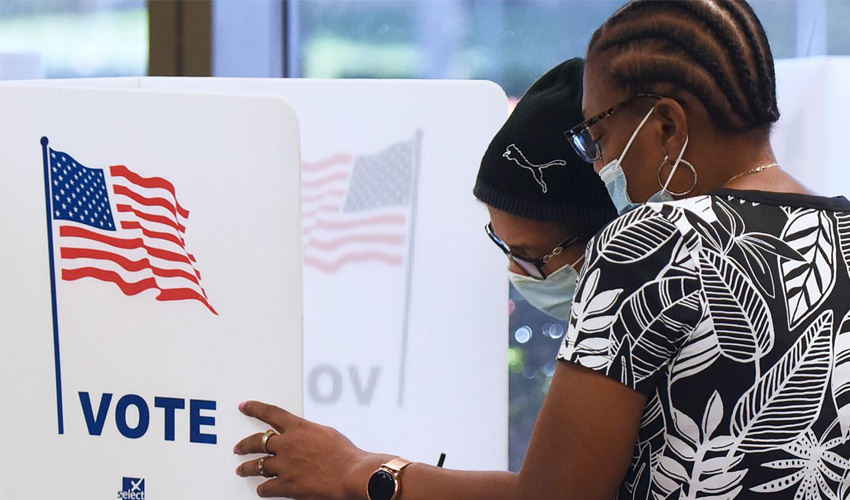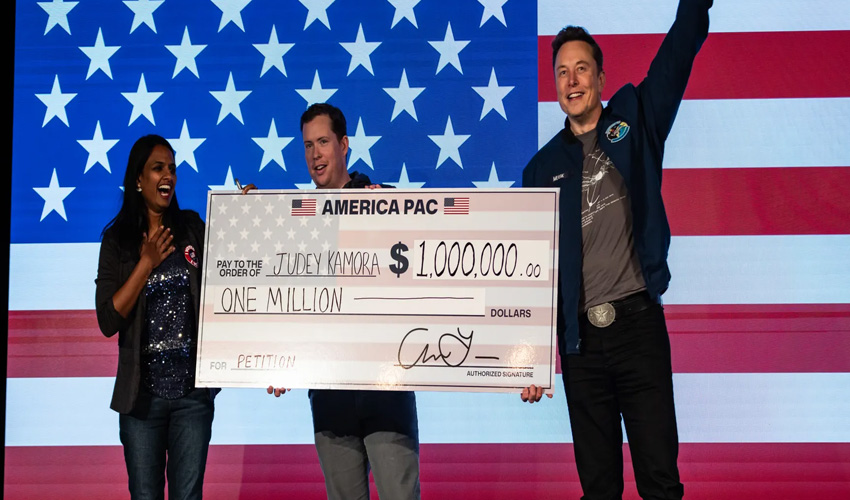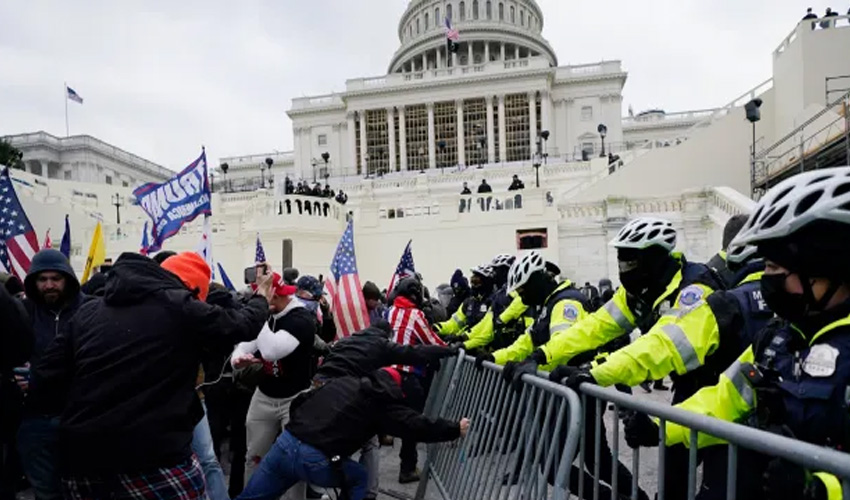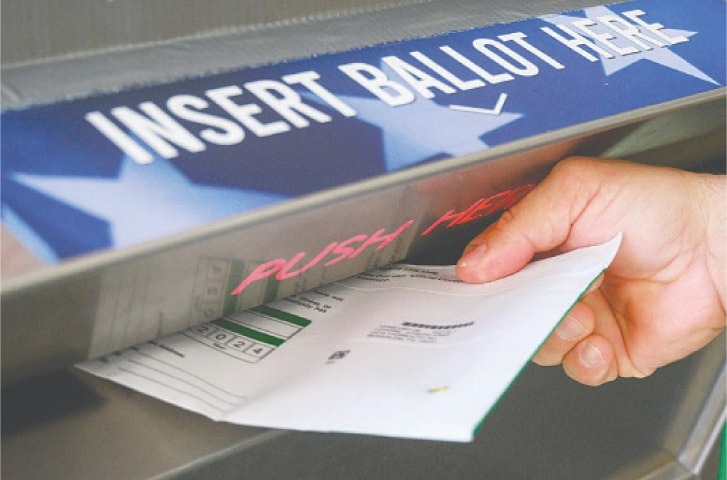In an unexpected turn of events for the Black communities, ahead of the 2024 U.S. presidential election, it has come to light that there is a controversy whether Donald Trump could be considered as an alternative for the Democratic party.
For so long, Black voters have been a stronghold for the Democratic party and thus have played a major role in determining the results of American elections. Recent polls and media attention reveal that the stronghold may shift slowly but significantly.
This raises the question: Are Black voters leaving the Democratic party? And why?
Economic concerns vs. controversies
In a Georgia barbershop, the debate is vivid and animated. The owner of the barbershop, Goody, and his longtime client, Gardy Leandre, a Haitian-American tax director, represent the conflicting views in this emerging discourse. According to Goody, Trump's actions, such as those he considers racially insensitive, should be a reason for Black voters not to vote for him. However, Gardy was more interested in the profit motive and business support in his response to Trump. He maintained that the latter's past policies have only helped individuals like him pocket money. This conversation depicts the intricate nature of debate among the Black voters—that is, balancing economic interest with social and cultural interest.
While the African American community traditionally leans Democratic, especially in national elections, recent New York Times/Siena College polling suggests a potential erosion in that support for Kamala Harris, the Democratic vice-presidential candidate, among Black voters. According to this one, she stands at a 78% approval among Black voters-a troubling number for the 87% Blacks gave Joe Biden and Harris in 2020. This decline has elicited extensive commentary and speculation of a seismic shift in the alignment of Black voters. A closer look, however at other polls, cultural nuances, and history may reveal a different story.
Methodological factors and misconceptions
One of many polls: New York Times/Siena College poll. Other polls, which do not directly agree with the New York Times/Siena College poll. For instance, CBS News/YouGov puts Harris at 87%, NBC pegs it at 84%, and ABC News/Ipsos puts it at 82%. It's that different that political analysts warn one should not conclude based on a single poll.
Further digging into methodology finds a "cultural competence" gap. The New York Times poll combined the Census Bureau's "Black Alone" and "Black in Combination" categories, a distinction that lumps Black individuals with mixed-race backgrounds together. Of the respondents in this combined category, just 60 percent back Harris, a much smaller share than among "Black Alone" respondents, of whom 80 percent favor her. Such methodological issues may potentially make Black voter alignment inflate some readings, and specifically lose out on the sort of cultural identity dynamics underlying certain aspects of the survey findings.
It only adds up that the shortage in this area of cultural competency raises questions about how homogenous is the Black electorate. Data differs, after all, by age and income, with even those belonging to more mixed racial or ethnic identifications -- of growing significance, if nothing else -- likely being treated differently within the very old, traditional view and approach of how to pick your political masters.
Democratic loyalty and attractiveness of representation
Traditionally, the Black vote has had a virtually monolithic share in favour of the Democratic party. Even relatively inattentive candidates toward Blacks had high percentages of the votes. In particular, Kamala Harris has secured place as the first Black Asian woman vice president to support the Democrats more closely at the polling station. However, it mainly emanates from such basic, foundational issues such as economic equality and social justice as Black societies tend to place first preference.
This present attention on Black male voters who may possibly vote for Trump over Harris finds resonance in an already existing gap in political preference among Blacks. Studies show that there is a possibility that African American men vote more and more for the Republican side than African American women even though the former remains majorly pro-Democratic. This generation gap is historically rooted in the view of economic empowerment and who best represents a candidate as an effective solution to address fiscal concerns, such as 401(k) returns and small business growth—a very important point for individuals like Leandre who place economic benefits against the more divisive rhetoric of Trump.
Disinformation, misinformation, and Black voters
Today's political environment is riddled with disinformation and falsehoods, especially on social media, where bad actors, lobby groups, and foreign entities are actively working to create discord among U.S. voters. Black communities have been targeted by disinformation campaigns, often through social media and messaging apps, as they play on the racial tensions that already exist and try to sway the vote of Black voters towards alternatives, mainly to split up Democratic support and prevent voter turnout.
For instance, during the previous elections in 2016 and 2020, false online narratives against the Black voters had circulated the information of fake narratives regarding Democratic candidates and promoted the small fissures within the party to deter the voters. This time around during the election, it would probably be much more vicious with the repetition of false information going around on social media regarding Harris's policies and intentions.
Change or no change?
The actual complexity of Black voter loyalty extends far beyond one or two opinion polls. While segments might express discontent with the Democratic party, historical patterns and issues that resonate more directly in the Black communities in terms of healthcare, police reform, and social equity are powerful motivators that continue to propel strong majority support for Harris. This is a proactive approach by the Democratic party, including Harris's community engagement and early campaigning, which reflects an acute awareness of such potential shifts and a strategy to address them.
It's apparent that Black voters are not monolithic and their political choices are both pragmatic in terms of the requirements and deeply rooted values. When the election gets closer, each party will work overtime to convince this essential constituency; however, it's apparent that the relationship of the Democratic party with the African American community runs very deep—it may be shaken but not broken.
The obsession with one poll result speaks to a larger problem in political commentary: the tendency to extrapolate from isolated data points without regard for context. Democratic support among Black voters has been strong historically, based on policy alignment and shared ideals. Although the impact may be minimal on certain niches of the Black population, particularly in terms of economically-focused Black men, the Democratic party still remains an anchor due to investment in culturally competent outreach and policy issues.
The 2024 election season has just begun, but the final weeks leading up to November 5 will likely reveal more about the nuanced relationship between Black voters and both political parties. Still, if history and current outreach efforts are any guide, Harris and the Democratic party will still command the loyalty of most Black voters—a powerful force that could prove decisive in another tightly contested election.



























